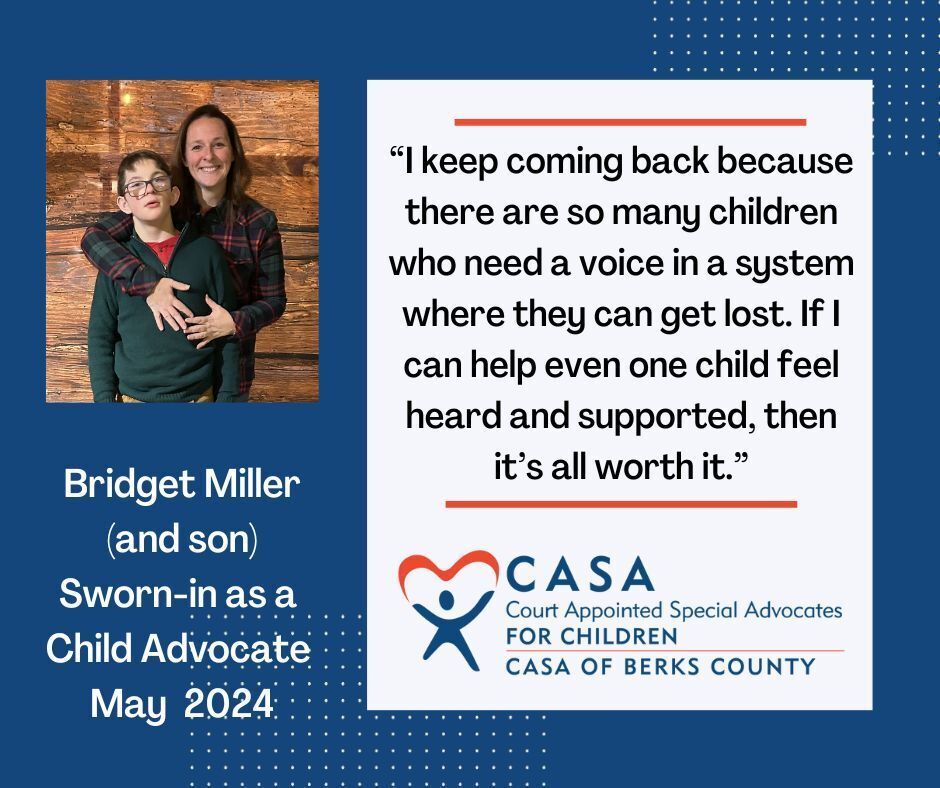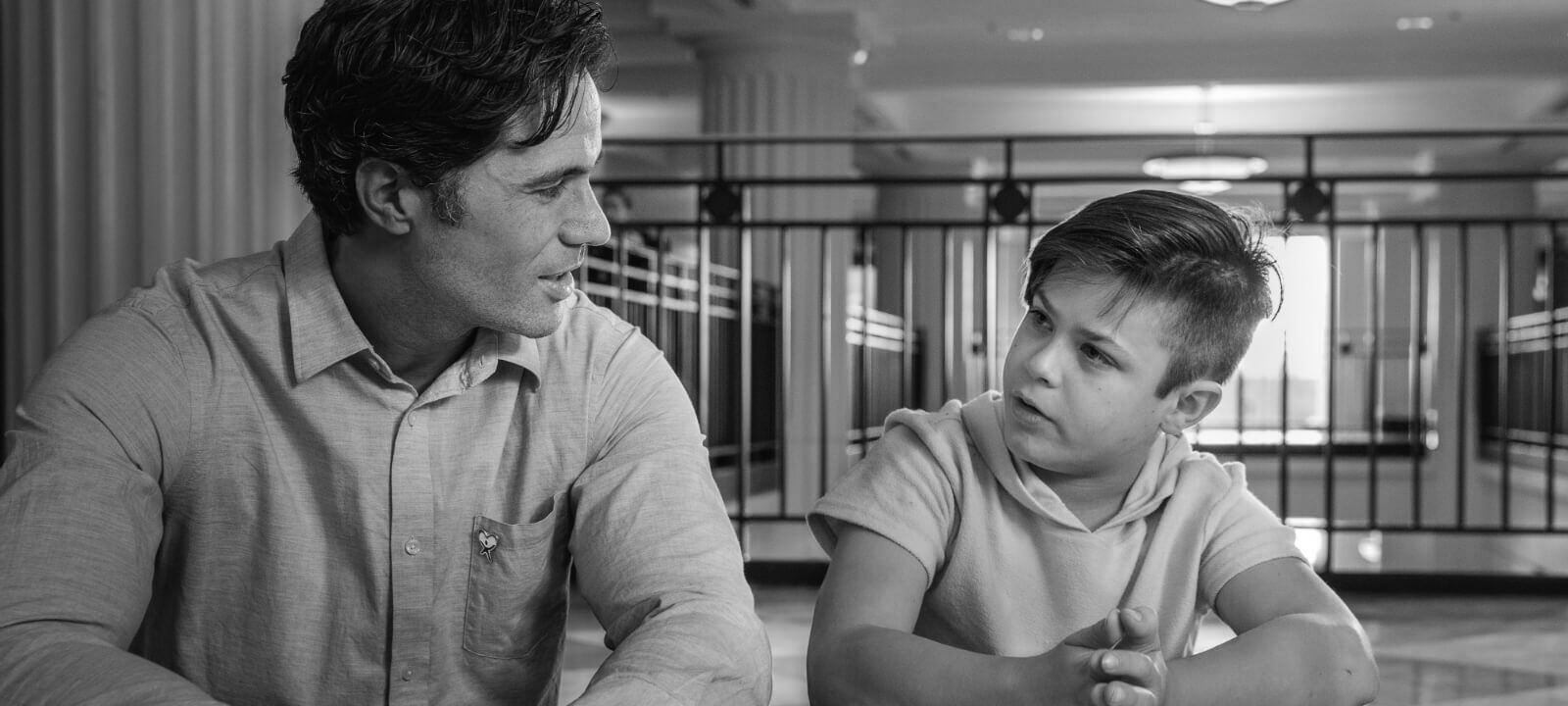
1.) Tell me a little bit about yourself.
I am currently an executive assistant at Unique Pretzel Bakery in Reading, PA. I have three children—ages 27, 22, and 12. My youngest son has special needs, which has given me a deep understanding of the challenges children with IEPs or special education and health needs face. Because of this, I take a particular interest in supporting children who require additional advocacy in these areas.
2.) What made you decide to become a CASA?
When I was a teenager, my family fostered children, and foster care has always been close to my heart. However, because of my son's additional needs, being a resource home isn’t the right fit for our family. Becoming a CASA has given me a meaningful way to stay involved in a cause I deeply care about.
3.) Did the CASA training prepare you for your first case? Did you feel supported?
Yes, I felt supported. Christa, the Program Manager, has been an incredible resource—her knowledge and guidance have been invaluable throughout my journey as a CASA.
4.) How nervous were you to meet the child in your first case?
I wasn’t particularly nervous, though I had been told he was a "tough nut to crack." I took the time to explain my role and reassure him that I was there to support him. Once he understood that, he started opening up fairly quickly.
5.) How long have you been a CASA volunteer, and how many cases have you had?
My first case has since closed, and I am now working with a pair of siblings.
6.) How do you balance being a CASA volunteer with your busy life?
Scheduling in advance is key for me! As a full-time employee and a mother, I plan my appointments, calls, and visits as much as possible ahead of time to stay organized.
7.) With so many people involved in a child's case—family, foster family, school, doctors, caseworkers—how do you stay organized? Any tips for new CASA volunteers?
I keep a notebook with all pertinent information and maintain a running to-do list that I update after each visit. One evening a week, I dedicate an hour or two to organizing my notes and planning any follow-up tasks, visits, or calls.
8.) Has there been a moment in your CASA experience that reaffirmed why you do this work?
Absolutely. My first case involved a pre-teen who had been cared for by an elderly relative. When the relative became ill and could no longer care for him, he was placed in foster care. His beloved cat, Jagger (name changed for privacy), was taken in by a family friend, and he longed to see his pet again. I advocated for him by recommending to the court that visits with Jagger be included in the judicial order. Recognizing the importance of this connection, the judge agreed, and regular visits with Jagger were arranged. Seeing the joy this brought him reminded me why I do this work.
9.) Being a CASA is not always easy. What is the hardest part, and what keeps you coming back?
The hardest part is not knowing how my kiddo is doing now that he has moved out of the county. But I keep coming back because there are so many children who need a voice in a system where they can easily get lost. If I can help even one child feel heard and supported, then it’s all worth it.


